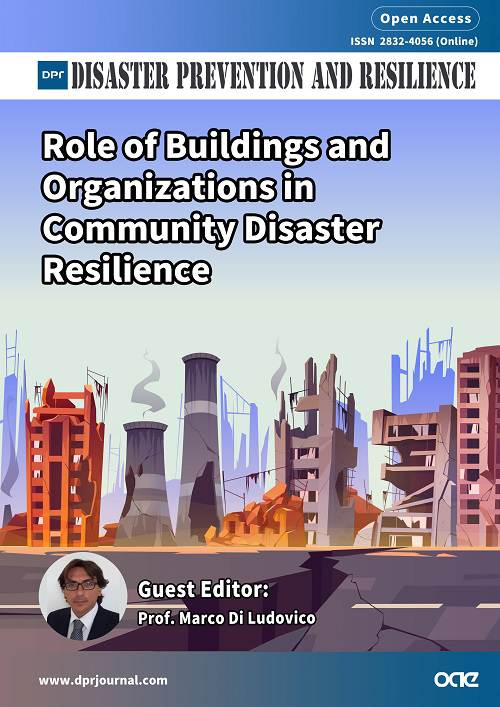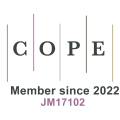
Topic: Role of Buildings and Organizations in Community Disaster Resilience
A Special Issue of Disaster Prevention and Resilience
ISSN 2832-4056 (Online)
Submission deadline: 31 Dec 2023
Guest Editor(s)
Special Issue Introduction
Awareness and knowledge are milestones of a process aimed at promoting a culture of disaster preparedness and resilience. Buildings play a crucial role in community dynamics, and unattended damage or degradation phenomena can result in severe economic losses and consequences on public safety. The load demand may increase during buildings' life cycle due to a change of use or to new design code requirements reflecting the improved knowledge related to multiple natural hazards (e.g., earthquakes, floods, volcanoes, strong winds, tsunamis, and drought). Climate change and related hazards are also contributing to highlighting the vulnerability of existing building stock. Thus, mitigation actions for the programming of sustainable interventions to reduce losses caused by natural hazards are crucial to enhance community resilience and improve disaster risk management.
Scientific communities and national and international organizations play a vital role in driving researchers on specific themes and converting knowledge and scientific products into technical guidelines and codes promoting prevention activities.
Advancing disaster risk reduction requires a cross-disciplinary approach integrating new technologies in observing system development, state-of-the-art methodologies, and efficient numerical and analogical modeling.
In this framework, the Special Issue focuses on studies, research, and experiences in line with priorities defined by the Sendai Framework for Disaster Risk Reduction 2015–2030 (especially, Priority 3: Investing in disaster risk reduction for resilience; Priority 4: Enhancing disaster preparedness for effective response and to "Build Back Better" in recovery, rehabilitation and reconstruction).
Experimental studies aimed at investigating and validating the effectiveness of modern techniques and innovative materials to increase the safety level of the existing building stock as well as theoretical analyses, design procedures and numerical modeling of mitigation interventions are of particular interest. In addition, the collection and discussion of data related to damage and losses due to natural hazards are within the scope of the Special Issue. Finally, papers describing key findings of experiences and programs carried out by national or international organizations to enhance community disaster resilience are also strongly encouraged.
Scientific communities and national and international organizations play a vital role in driving researchers on specific themes and converting knowledge and scientific products into technical guidelines and codes promoting prevention activities.
Advancing disaster risk reduction requires a cross-disciplinary approach integrating new technologies in observing system development, state-of-the-art methodologies, and efficient numerical and analogical modeling.
In this framework, the Special Issue focuses on studies, research, and experiences in line with priorities defined by the Sendai Framework for Disaster Risk Reduction 2015–2030 (especially, Priority 3: Investing in disaster risk reduction for resilience; Priority 4: Enhancing disaster preparedness for effective response and to "Build Back Better" in recovery, rehabilitation and reconstruction).
Experimental studies aimed at investigating and validating the effectiveness of modern techniques and innovative materials to increase the safety level of the existing building stock as well as theoretical analyses, design procedures and numerical modeling of mitigation interventions are of particular interest. In addition, the collection and discussion of data related to damage and losses due to natural hazards are within the scope of the Special Issue. Finally, papers describing key findings of experiences and programs carried out by national or international organizations to enhance community disaster resilience are also strongly encouraged.
Submission Deadline
31 Dec 2023
Submission Information
For Author Instructions, please refer to https://www.oaepublish.com/dpr/author_instructions
For Online Submission, please login at https://oaemesas.com/login?JournalId=dpr&IssueId=DPR220929
Submission Deadline: 30 Apr 2023
Contacts: Monica Wang, Assistant Editor, monica@dprjournal.com






